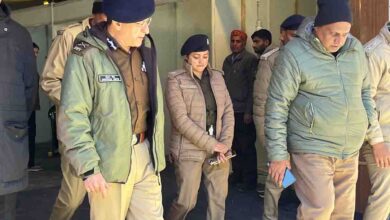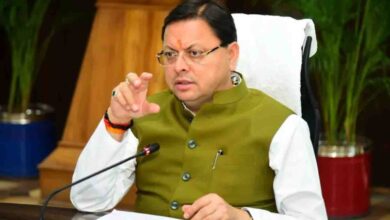Worsening mental health scenario of India’s ageing population worrisome

SNEHA YADAV | DEHRADUN
The world is ageing at an unprecedented rate. India is not far behind. As per predictions of the United Nations Population Fund (UNFPA) in its India Ageing Report 2023, the percentage of the elderly population in India is projected to double to over 20 per cent of the total population by 2050.
Decline in fertility rate accompanied by an increase in life expectancy has led to growing concerns about healthy ageing. The concept of healthy ageing not only encompasses physical health but also mental and emotional well-being.
According to the National Mental Health Survey Report 2015-16, with more than 10 per cent of the old age population facing depression and anxiety-related issues, 28 per cent to 80 per cent of the mental health disorder remains undiagnosed and untreated.
Expressing concern, a clinical psychologist based in Dehradun Dr Pratibha Sharma said: “The substantial treatment gap is due to the inability of the senior citizens to periodically visit the medical practitioners and lack of awareness, especially in the rural areas. This is leading to acceptance of illness instead of focussing on cure.” She also emphasised the limited availability of resources.
India has just 0.75 psychiatrists per lakh population which is far below the WHO recommendation of at least three psychiatrists per lakh population.
When asked about the early symptoms in the person to recognise any kind of mental illness, Dr Sharma said that there are three kinds of symptoms of mental illness: mental, social and physical symptoms. “If an individual is feeling bad from the inside along with anxiety issues, sleeplessness and lessening appetite he/she must visit a medical practitioner,” she added.
However, with the expansion of neuroscience into several other branches, including psychology, psychiatry, psychotherapy and neurology, it becomes difficult for a patient to differentiate and select whom to consult.
“In a country like India, after consulting the family doctor, people should visit a psychologist who will diagnose the problem and the psychiatrist then will provide medication. Both these professionals tend to work together in Indian settings. Further, a psychotherapist will use talk therapy to treat,” said a Dehradun-based psychoanalyst Dr Aditi Arora.
When asked about the challenges faced while treating geriatric patients, a professor at the Department of Psychiatry, Institute of Medical Sciences, Banaras Hindu University (BHU), Dr Jai Singh Yadav said, “In most cases, senior citizens are brought to us only when their condition has significantly worsened. Additionally, the presence of co-morbidities- both mental and physical- complicates the treatment process as the medications prescribed can sometimes aggravate their symptoms.”
“More importantly, nursing care requires more sensitivity with older adults,” said a professor, Department of Psychiatry, AIIMS, Rishikesh, Dr Anindya Das. Further, he emphasised the need for integrated geriatric services addressing both physical and mental health aspects in the future.






